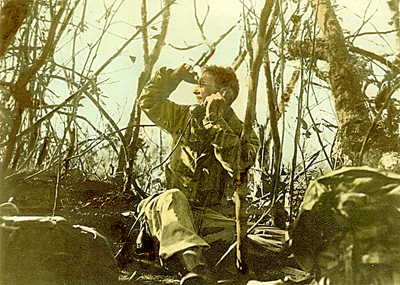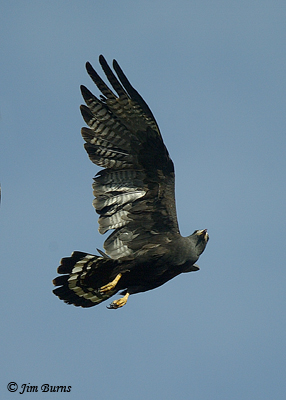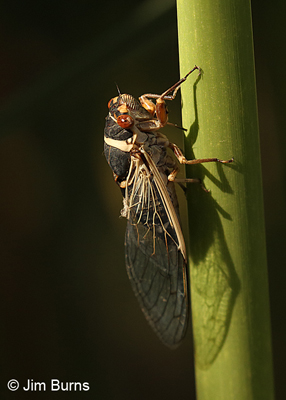Zone-tailed Hawk |
Cicada |
I received the email yesterday. Odd, after all these years. And unexpected of course. But certainly not bearing the import, now, of the telegram she received that day in May of ’45. Attached to the email, from a cousin with whom I am not close, was another fragment of my past presumed lost with the passage of people and time. A faded newspaper clipping from the Tampa Tribune, June 6, 1945 which bears the fraught, unforgettable phrase-- . . . “and a young son whom he has never seen.”
I notice the vultures first, as the trail turns and leads from a boulder field into an open, sandy wash. Eight of them, wings spread in the familiar dihedral as they drift along on an afternoon thermal. What is it they call a group of vultures? On the ground, attendant at a carcass, it is a “committee.” Aloft like this, perhaps a “kettle.” And then I see the hawk, above and behind the kettle but accompanying them, its wings in its mimic dihedral but the feet and legs dangling unlike those of the scavengers.
June 6. It would have been two weeks since the sniper’s bullet found him, perhaps a month or less after the only photograph I have was taken. The clipping has a headline above his picture, followed by a brief notice. Just three short paragraphs. First, the next of kin. And last of course, the terse, official chronology of his service. But it is the middle paragraph which carries the unanticipated revelation, a stunning artifact of family history, given that it has heretofore been unknown or unrevealed.
An officer attached to headquarters, Col. Burns volunteered to lead the march down the Ormoc road that freed thousands of American prisoners held during the early invasion days in the Phillippines.
I see the raptor, a Zone-tailed Hawk, break free now from its entourage of Turkey Vultures, and disappear as it passes behind a ridgeline. The grisly crew of nature’s undertakers continues on in the search for their next gruesome clean-up duty. Out of sight behind the ridge some hapless squirrel or lizard’s destiny will intersect with a raptor’s purpose.
The photo I have is an old monochrome, yellowed now with age. He sits calmly, as if at a desk, though he is on the ground in a dappled jungle clearing amidst vines and verdant cover. It is true monsoon season there in that far place from whence that term originated. Dappled too the soiled fatigues, with sweat, gun grease, blood perhaps, and nearby the battered helmet bearing two bars. One hand shades his eyes as he surveys the front. The other holds a phone as he commands his perimeter.
As I come up on the mesquite bosque, I begin to hear the cicadas. Nearly deafening by the time I reach the middle of the grove, their life cycle is nearly run. Cicadas do not foretell a coming rain as the ancient myths relate, but rather the passage of the desert’s dry “first summer” with its stifling heat in which they emerge from underground, mate, then shortly die.
“Passage?” The evolution of the English language has always fascinated me. From the Latin passer, to pass on, has come all the present nuances, all the verbs and nouns and tenses of that word from a dead and passe language. Passing on. Time never stands still. Time always passes. A road was once a passage. Now, death is a passage. People on that road pass by.
And “hero?” Is a man a hero if one never knew what he had done as he passed by?

